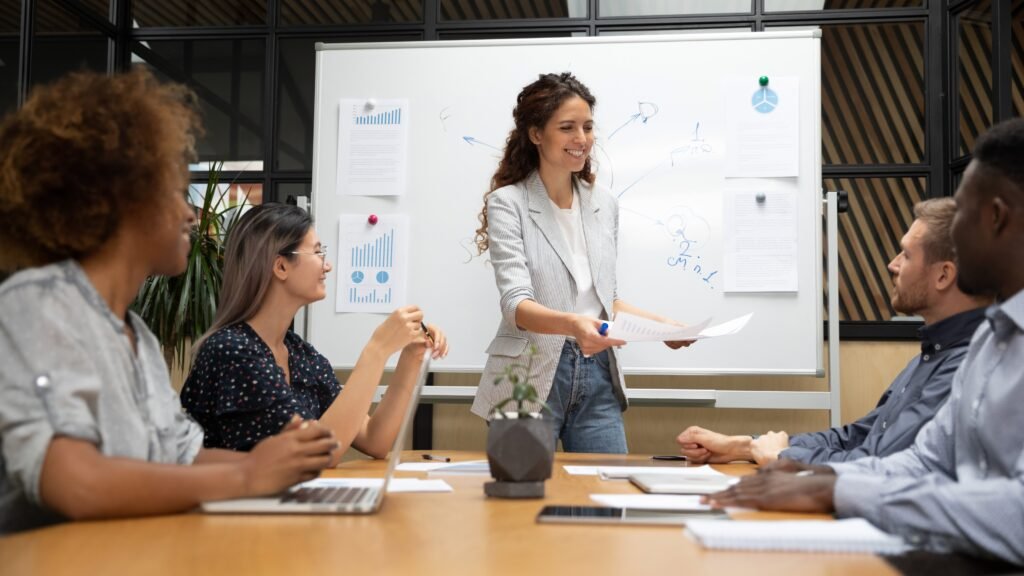Effective group facilitation is essential for achieving successful outcomes in meetings, workshops, and collaborative sessions. Understanding and mastering the key skills for effective group facilitation can significantly enhance your ability to guide discussions, resolve conflicts, and foster productive interactions. In this article, we’ll dive into these essential skills and how you can develop them to lead more successful group facilitation sessions.
Unwind with Exciting Casino Games
For those looking to add some fun and excitement to their downtime, explore a wide variety of casino games. Casinocorner.ca offers a rich selection of games that can be enjoyed solo or with friends, making it a great way to relax and socialize after productive sessions.
Communication Skills
First and foremost, communication skills are fundamental to effective group facilitation. Clear and concise communication helps ensure that everyone understands the agenda, objectives, and their roles within the session. As a facilitator, you need to articulate ideas, instructions, and feedback clearly. For example, start each meeting by outlining the goals and the process. This clarity sets expectations and helps keep the group focused. Additionally, actively listen to participants, validate their contributions, and provide constructive feedback. This two-way communication fosters a collaborative environment and helps in managing group dynamics.

Active Listening
Another critical skill for effective group facilitation is active listening. Active listening involves paying full attention to what participants are saying, without interrupting or making judgments. It helps in understanding different perspectives and ensures that everyone feels heard. For instance, when a participant shares an idea, acknowledge it by summarizing their points and asking follow-up questions. This not only shows respect but also encourages further discussion. By practicing active listening, you can better address concerns, resolve conflicts, and integrate diverse viewpoints into the conversation.
Conflict Resolution
Conflict resolution is an essential skill for managing group dynamics and ensuring a productive session. Conflicts can arise from differing opinions, misunderstandings, or personal disagreements. As a facilitator, you must handle these conflicts calmly and constructively. Start by identifying the root cause of the conflict and listening to all sides of the issue. Then, guide the group towards a resolution by finding common ground and proposing solutions. For example, if two members disagree on a project approach, facilitate a discussion to explore alternatives and reach a compromise. Effective conflict resolution helps maintain a positive and collaborative atmosphere.
Time Management
Time management is crucial for keeping group facilitation sessions on track and ensuring that all agenda items are covered. Efficient time management involves setting and adhering to a schedule, prioritizing key topics, and avoiding discussions that deviate from the agenda. For instance, allocate specific time slots for each agenda item and use a timer to stay on track. If a topic needs more time than planned, address it briefly and propose a follow-up discussion if necessary. Good time management helps keep the session focused and productive, ensuring that objectives are met within the allotted time.
Adaptability
Adaptability is another vital skill for effective group facilitation. Group dynamics and discussions can be unpredictable, so being flexible and responsive to changing circumstances is essential. For example, if a discussion takes an unexpected turn, be prepared to adjust the agenda or change facilitation techniques as needed. Similarly, if a technical issue arises during a virtual meeting, quickly adapt by using alternative tools or methods. Being adaptable allows you to handle unexpected challenges smoothly and maintain the flow of the session.
Group Engagement
Engaging the group is key to ensuring that participants are actively involved and invested in the session. Use various techniques to encourage participation, such as asking open-ended questions, using interactive activities, and promoting brainstorming sessions. For example, start with a quick icebreaker to get everyone talking and comfortable. Throughout the session, encourage input from all participants and create opportunities for them to contribute ideas. Engaging the group helps in maintaining interest and maximizing the effectiveness of the session.
Organizational Skills
Finally, strong organizational skills are crucial for planning and executing successful group facilitation sessions. This includes preparing materials, setting up the space (whether physical or virtual), and managing logistics. For instance, create and distribute an agenda before the meeting, arrange necessary resources, and ensure that all technical equipment is functioning properly. Effective organization helps the session run smoothly and allows you to focus on facilitating rather than handling last-minute issues.
Conclusion
In conclusion, mastering the key skills for effective group facilitation—communication, active listening, conflict resolution, time management, adaptability, group engagement, and organization—can significantly enhance your ability to lead productive and successful sessions. By developing these skills, you create a collaborative environment that fosters open communication, addresses challenges constructively, and achieves meeting objectives efficiently. Embrace these strategies to improve your facilitation skills and lead more effective group session.

